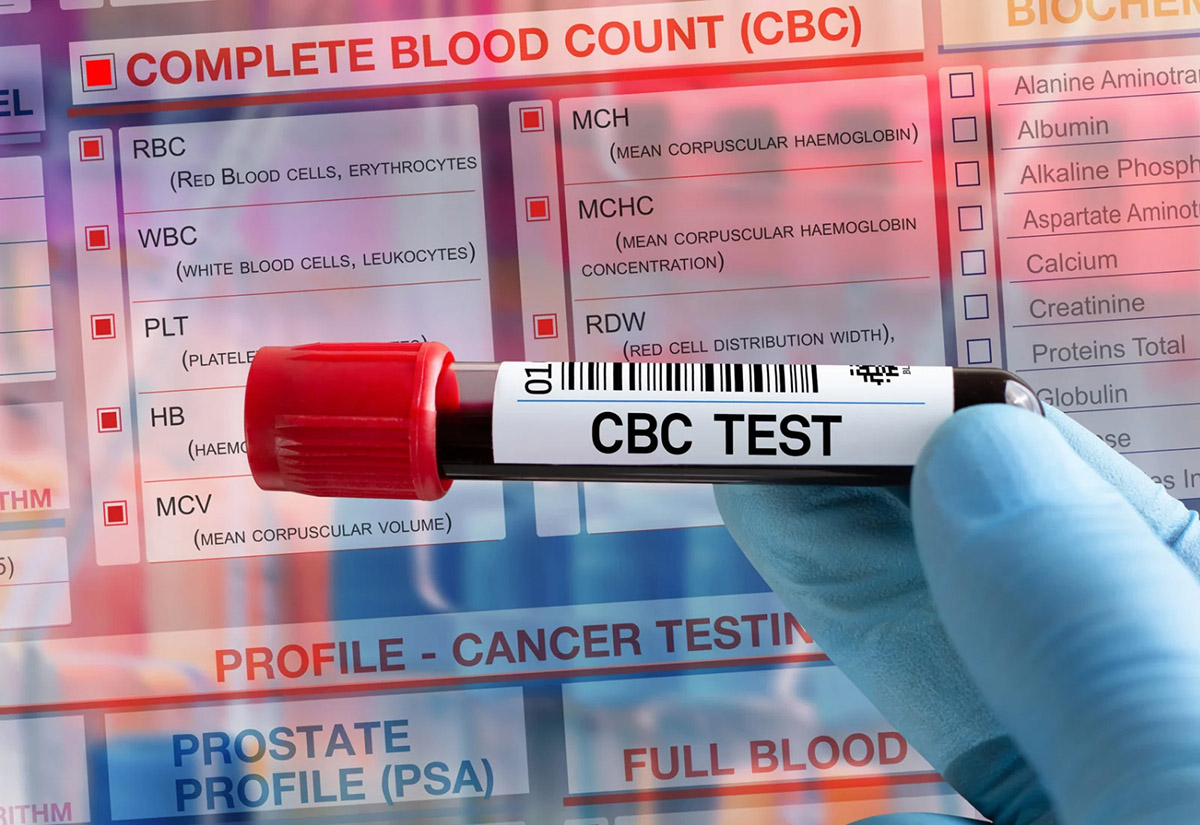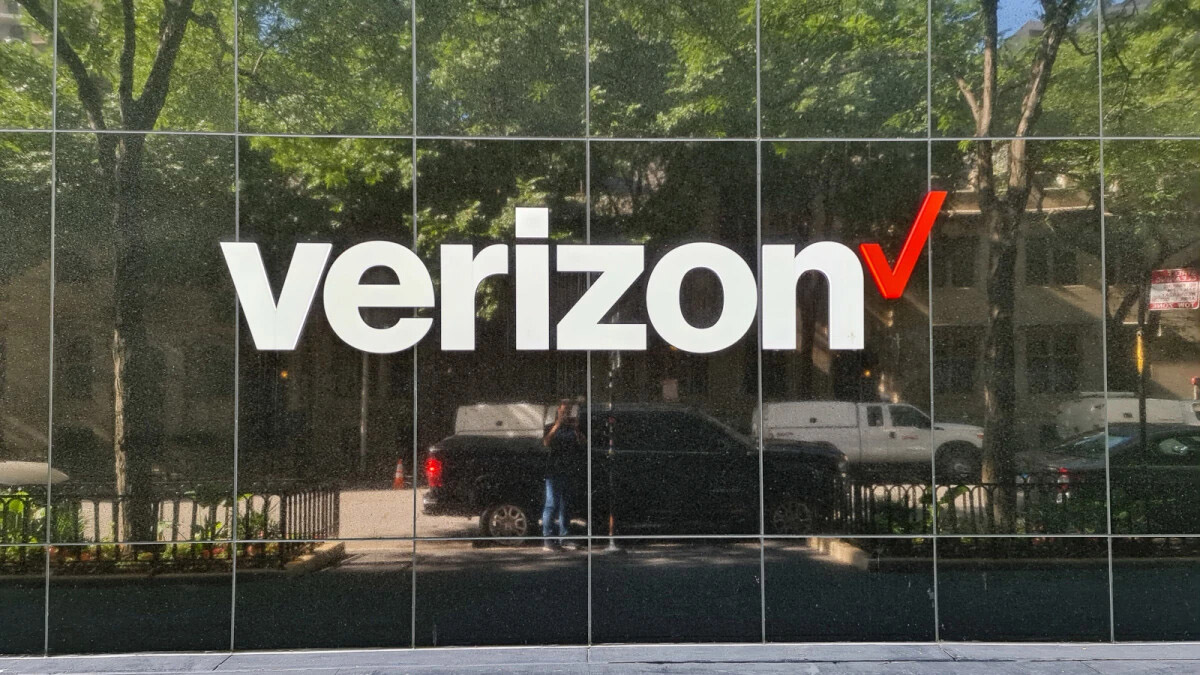Home>Finance>How Much Do Baby Vaccines Cost Without Insurance


Finance
How Much Do Baby Vaccines Cost Without Insurance
Published: November 22, 2023
Discover the average cost of baby vaccines without insurance and learn how to manage your finances for this important aspect of your child's health.
(Many of the links in this article redirect to a specific reviewed product. Your purchase of these products through affiliate links helps to generate commission for LiveWell, at no extra cost. Learn more)
Table of Contents
- Introduction
- Understanding the Importance of Vaccinating Babies
- The Cost of Baby Vaccines Without Insurance
- Factors Affecting the Cost of Baby Vaccines
- Finding Affordable Options for Baby Vaccines
- Government Assistance Programs for Baby Vaccines
- Community Health Centers and Free Vaccination Clinics
- Negotiating Vaccine Costs with Healthcare Providers
- Other Strategies to Reduce Vaccination Costs
- Conclusion
Introduction
Vaccinating babies is a crucial aspect of their healthcare routine to protect them from serious and potentially life-threatening diseases. Whether it’s measles, polio, or meningitis, vaccines play a vital role in safeguarding children’s health. However, one common concern among parents is the cost of these vaccines, especially when they don’t have insurance coverage.
In this article, we will delve into the world of baby vaccines and explore the various options available for families who are looking to vaccinate their infants without insurance. We will discuss the importance of vaccinating babies, the cost factors associated with these immunizations, and strategies to find affordable options. Additionally, we will examine government assistance programs and free vaccination clinics that can help alleviate the financial burden.
Vaccines are not only essential for the health of individual children, but they also contribute to the overall well-being of the community. By immunizing babies, we can prevent the spread of infectious diseases and protect those who are unable to receive vaccinations due to medical reasons.
Let’s dive into the details of baby vaccines, their costs, and how families can navigate through the financial aspect of keeping their little ones safe and healthy.
Understanding the Importance of Vaccinating Babies
Vaccinating babies is one of the most effective ways to protect them from preventable diseases. Vaccines stimulate the body’s immune system to recognize and fight off harmful viruses and bacteria. While babies are born with some natural immunity passed on from their mothers, this protection wanes over time. Vaccines help bridge this gap and provide long-term immunity against a range of diseases.
Immunizations not only protect individuals but also help create herd immunity. This concept refers to a community’s overall resistance to a particular disease when a large percentage of the population is vaccinated. When a significant portion of the population is immune to a disease, it becomes more challenging for the disease to spread, protecting even those who may not be able to receive certain vaccines due to age or medical conditions.
Timing is crucial when it comes to vaccinating babies. Some vaccines are administered shortly after birth, while others follow a schedule of multiple doses throughout the first years of a child’s life. Sticking to the recommended vaccine schedule ensures that infants are protected as early as possible and receive the necessary booster shots to maintain immunity.
It’s important to note that vaccines undergo rigorous testing and are continually monitored for safety. The benefits of vaccination far outweigh the risks associated with potential side effects, which are typically mild and temporary, such as soreness at the injection site or a low-grade fever. The safety of vaccines is closely monitored by regulatory agencies and healthcare professionals.
By vaccinating babies, we not only protect them from potentially life-threatening diseases but also contribute to the broader goal of eradicating certain diseases altogether. Vaccines have already achieved remarkable success in eliminating diseases like smallpox and bringing others, like polio, to the brink of eradication. Continued vaccination efforts are vital in maintaining these achievements and protecting future generations.
In the next sections, we will explore the cost factors involved in vaccinating babies without insurance and provide strategies to help families find affordable options.
The Cost of Baby Vaccines Without Insurance
One of the primary concerns for parents without insurance coverage is the cost of baby vaccines. The price of vaccines can vary depending on several factors, such as the specific immunization, location, and healthcare provider. Without insurance, parents may be responsible for paying the full retail price of each vaccine and any administration fees associated with the shots.
The cost of individual baby vaccines can range anywhere from $20 to $200 per dose. On top of that, some vaccines require multiple doses to ensure maximum effectiveness, which can further increase the overall cost. For example, the recommended schedule for the pneumococcal conjugate vaccine (PCV13) includes four doses, and the total cost without insurance coverage can easily exceed $800.
In addition to the cost of the vaccines themselves, healthcare providers may charge an administration fee for each dose. These fees typically cover the cost of storing and handling the vaccines, as well as the healthcare professional’s time and expertise in administering the vaccine. Administration fees can range from $15 to $50 per dose, adding to the overall expense.
It’s important to note that these prices are approximate and can vary significantly depending on the location and healthcare provider. Some clinics and pharmacies offer discounts or package deals for multiple vaccines, which can help reduce the overall cost. It’s worth exploring different options and comparing prices to find the most affordable solution.
Without insurance coverage, the cost of baby vaccines can quickly add up, especially when considering the full schedule of recommended immunizations. However, it’s crucial not to compromise on your child’s health and safety. Fortunately, there are ways to mitigate these costs and find affordable options, as we will discuss in the following sections.
Factors Affecting the Cost of Baby Vaccines
Several factors contribute to the cost of baby vaccines, making it important to understand why prices can vary. By considering these factors, parents without insurance coverage can make informed decisions when it comes to finding the most affordable options.
1. Vaccine Type: Different vaccines target specific diseases, and the cost can vary depending on the complexity of the vaccine production process and the demand for the immunization. Some vaccines require more extensive research and development, which can lead to higher prices.
2. Vaccine Manufacturer: Multiple manufacturers produce vaccines, and the prices can differ between brands. It’s essential to check with healthcare providers or vaccine clinics to understand which manufacturers they use and compare the prices.
3. Vaccine Supply and Demand: The availability of vaccines and the demand for them can impact the cost. In some cases, shortages or high demand can drive up prices. Conversely, if there is an abundance of supply, prices may be more competitive.
4. Healthcare Provider Charges: Different healthcare providers may have varying pricing structures for vaccines and administration fees. It’s essential to inquire about the costs associated with vaccines when choosing a healthcare provider.
5. Location: The cost of vaccines can vary based on geographic location and local market factors. For example, prices in urban areas may differ from those in rural areas due to variations in operating costs and competition.
6. Negotiation Ability: While negotiating the cost of vaccines may not be possible in all situations, it can be worth discussing with healthcare providers, especially if you’re paying out-of-pocket. Some providers may be open to offering discounts or flexible payment options.
It’s important to consider these factors when estimating the cost of baby vaccines without insurance coverage. While the prices may seem daunting, there are resources and strategies available to help reduce the financial burden. In the next sections, we will explore various avenues to find affordable options for baby vaccines.
Finding Affordable Options for Baby Vaccines
While the cost of baby vaccines without insurance can be daunting, there are several strategies and resources available to help families find affordable options. By exploring these avenues, parents can ensure their babies receive the necessary immunizations while minimizing the financial burden.
1. Medicaid and CHIP: Families with low-income or limited resources may qualify for Medicaid or the Children’s Health Insurance Program (CHIP). These government-funded healthcare programs provide coverage for vaccinations and other healthcare services for eligible children. It’s important to check the eligibility requirements and apply for these programs to access subsidized or free vaccines.
2. Vaccine Assistance Programs: Vaccine manufacturers and nonprofit organizations often offer assistance programs to provide vaccines at reduced or no cost to eligible individuals. These programs aim to ensure access to vaccines for those who may not have insurance coverage. Check the websites of vaccine manufacturers or reach out to local healthcare providers to inquire about vaccine assistance programs available in your area.
3. Public Health Departments: Local public health departments or community clinics may offer free or low-cost immunizations for babies. These facilities usually have information on vaccine schedules and can administer the necessary shots without breaking the bank. Contact your local health department or community clinic to inquire about available vaccination services.
4. Retail Pharmacies and Grocery Stores: Many retail pharmacies and grocery stores have in-store clinics that offer vaccines. These clinics often have competitive prices for vaccines and may also accept insurance or offer discounts for uninsured individuals. It’s worth considering these options and comparing prices to find cost-effective solutions.
5. Vaccine Discount Programs: Some organizations or pharmacies may provide discounted rates on vaccines, either through loyalty programs or specific partnerships. Explore these options to take advantage of any available discounts and reduce the cost of baby vaccines.
6. Group Purchasing: Talk to other parents or form a group to collectively purchase vaccines. Buying vaccines in bulk can lead to cost savings and make immunizations more affordable for everyone involved. This strategy works best when parents are following the same vaccination schedule for their babies.
Remember to consult with healthcare professionals about the safety and efficacy of vaccines obtained through these alternative options. While finding affordable options is crucial, ensuring the vaccines are from reputable sources is equally important.
By exploring these avenues and utilizing the resources available, parents can minimize the financial burden of baby vaccines without insurance coverage. The health and well-being of your baby should never be compromised, and these strategies can help you provide the necessary immunizations without breaking the bank.
Government Assistance Programs for Baby Vaccines
The government plays a significant role in ensuring access to affordable vaccinations for babies through various assistance programs. These programs are designed to provide support to families who may not have insurance coverage for their children’s healthcare needs, including vaccines. Here are some government assistance programs that can help families obtain baby vaccines at reduced or no cost:
1. Medicaid: Medicaid is a joint federal and state program that provides healthcare coverage to low-income individuals and families. Each state sets its own eligibility criteria, but Medicaid usually covers vaccines for eligible children. Families can apply for Medicaid through their state’s Medicaid office or online to access subsidized or free vaccines.
2. Children’s Health Insurance Program (CHIP): CHIP is another government-funded program that provides healthcare coverage for children in low-income families who do not qualify for Medicaid. Like Medicaid, CHIP typically covers vaccines for eligible children. Families can apply for CHIP either through their state’s CHIP program or through the Health Insurance Marketplace.
3. Vaccines for Children (VFC) Program: The VFC program is a federal program administered by the Centers for Disease Control and Prevention (CDC). It provides vaccines at no cost to eligible children who might not otherwise be able to afford them. The program covers vaccines recommended by the CDC’s Advisory Committee on Immunization Practices (ACIP) for children up to 19 years of age. Eligibility criteria vary by state, but generally, children are eligible if they are uninsured, Medicaid-eligible, or of American Indian or Alaska Native heritage.
4. Affordable Care Act (ACA): The ACA, also known as Obamacare, requires insurance plans to cover recommended vaccines for children without charging a copayment or coinsurance when provided by an in-network provider. This provision ensures that children with insurance coverage have access to vaccinations without out-of-pocket costs.
It’s important to note that eligibility requirements, coverage, and the application process may vary by state and program. It’s crucial to research and understand the specific guidelines in your state, and consult with healthcare providers or resources such as HealthCare.gov for detailed information on these programs.
Government assistance programs play a vital role in ensuring that all children have access to the necessary vaccines for optimum health and protection against preventable diseases. By taking advantage of these programs, families can alleviate the financial burden of baby vaccines, prioritize their children’s well-being, and contribute to community health.
Community Health Centers and Free Vaccination Clinics
Community health centers and free vaccination clinics are valuable resources for families seeking affordable options for baby vaccines. These healthcare facilities focus on providing medical services to underserved populations and often offer immunizations at reduced or no cost. Here’s how these centers can help families access the vaccines their babies need:
1. Community Health Centers: Community health centers are nonprofit organizations that offer comprehensive healthcare services, including vaccinations, to individuals and families, regardless of their ability to pay. These centers serve as a primary healthcare provider for many individuals and often charge on a sliding fee scale based on income. They work with patients to make healthcare services, including vaccines, affordable and accessible. Contact your local community health center to inquire about their vaccination services and associated costs.
2. Free Vaccination Clinics: In many communities, organizations, healthcare providers, and public health departments organize free vaccination clinics to ensure that everyone has access to essential immunizations. These clinics may be held at schools, community centers, or other convenient locations. The vaccines are typically provided at no cost, and healthcare professionals administer them following recommended schedules. Keep an eye out for announcements and advertisements about these clinics in your community and take advantage of the opportunity to get your baby vaccinated without any financial burden.
3. Immunization Programs at Local Health Department: Local health departments often have dedicated immunization programs that provide vaccines for infants and children. These programs may offer immunizations at reduced costs or on a sliding fee scale based on income. The health department can also help ensure that your baby is following the recommended vaccine schedule and help you understand any available financial assistance options.
When visiting community health centers or free vaccination clinics, make sure to bring any necessary documentation, such as your baby’s medical records and identification, to facilitate the process. It’s also a good idea to call ahead and confirm the availability of the vaccines your baby needs.
Community health centers and free vaccination clinics are essential in bridging the gap in access to vaccines for families without insurance coverage. Take advantage of these resources to not only protect your baby but also contribute to the overall health and well-being of the community.
Negotiating Vaccine Costs with Healthcare Providers
For families without insurance coverage, negotiating vaccine costs with healthcare providers can be a viable strategy to reduce the financial burden. While not all providers may be open to negotiation, it’s worth exploring this option to potentially secure more affordable vaccines for your baby. Here are some tips for negotiating vaccine costs:
1. Research and Compare Prices: Before approaching healthcare providers, do some research to understand the average cost of the vaccines your baby needs. Look for pricing information from pharmacies, clinics, and other providers in your area. Armed with this knowledge, you can better assess and discuss the prices offered by different providers.
2. Express Your Financial Situation: Be open and honest about your financial constraints. Inform the healthcare provider that you are paying out-of-pocket for vaccines and discuss your willingness to negotiate the costs. Some providers may be sympathetic to your situation and offer discounted rates or flexible payment options.
3. Inquire about Package Deals or Discounts: Ask the healthcare provider if they offer package deals or discounts for multiple vaccines. Bundle pricing or discounted rates for a full vaccine schedule can help reduce the overall cost. Providers may also have special offers or promotions that can lead to significant savings.
4. Utilize Vaccines for Children (VFC) Program: If your baby meets the eligibility criteria for the VFC program, inform the healthcare provider about this program. Many providers participating in the VFC program are reimbursed for administering vaccines, which may make them more willing to negotiate or provide vaccines at a reduced cost.
5. Consider Different Healthcare Providers: If one provider is not open to negotiation or their prices are too high, consider seeking vaccines from alternative healthcare providers. Compare prices and options from different clinics, pharmacies, or community health centers. You may find more affordable options and providers more willing to negotiate.
6. Ask for Payment Plans: If negotiating a lower price is not possible, inquire about payment plans or financing options. Some healthcare providers offer flexible payment arrangements that can help you manage the cost of vaccinations over time.
Remember to approach the negotiation process with respect and clear communication. While not all providers may be able to accommodate your requests, it’s worth making the effort to explore different options and find a solution that works for both parties.
Reducing the cost of vaccines through negotiation can significantly alleviate the financial strain and ensure your baby receives the necessary immunizations. Be proactive, ask questions, and advocate for your family’s healthcare needs.
Other Strategies to Reduce Vaccination Costs
Aside from negotiating vaccine costs with healthcare providers, there are several other strategies that families without insurance coverage can implement to reduce the overall cost of baby vaccines. By exploring these options, parents can ensure their babies receive the necessary immunizations while minimizing the financial burden:
1. Government Vaccination Programs: In addition to the government assistance programs mentioned earlier, such as Medicaid, CHIP, and the VFC program, certain states might have additional programs or initiatives to provide vaccines at reduced or no cost. Research and inquire with your state’s health department or local healthcare providers about any state-specific vaccination programs that can help lower the cost.
2. Manufacturer’s Assistance Programs: Vaccine manufacturers often have assistance programs for uninsured individuals or those facing financial hardship. These programs provide vaccines at reduced or no cost, depending on the eligibility criteria. Check with the vaccine manufacturers or consult resources like VaccineFinder.org to learn more about available assistance programs.
3. Immunization Partnerships: Seek out partnerships between healthcare providers and community organizations or advocacy groups that offer discounted or free vaccines. These partnerships often aim to increase vaccination rates and may provide access to reduced-cost vaccines for families without insurance. Local health departments and community clinics can provide information on any such initiatives in your area.
4. Utilize Community Resources: Community resources like social service agencies, local nonprofits, and religious organizations might offer financial assistance or grants specifically for healthcare needs, including vaccines. Research and reach out to these resources to inquire about any available support for baby vaccines.
5. Look for Vaccine Clinics and Public Health Events: Keep an eye out for vaccine clinics and public health events in your community. These events are often organized by local health departments, healthcare organizations, or nonprofit groups and may offer free or low-cost vaccines for infants and children. Take advantage of these opportunities to get your baby vaccinated at a reduced cost.
6. Consider Out-of-Network Providers: While staying in-network with healthcare providers is generally recommended for insurance coverage, for those without insurance, exploring out-of-network providers might provide cost savings. Some providers outside the network may offer lower prices for vaccines or be more open to negotiation. However, always ensure that the provider is reputable and adheres to proper safety protocols.
Remember to keep a detailed record of your baby’s vaccinations, including the specific vaccines administered, the dates, and any associated costs. This information will be valuable for future reference, especially if you switch healthcare providers or need to verify your baby’s immunization history.
By combining these strategies and being proactive in seeking affordable options, families without insurance can significantly reduce the cost of baby vaccines without compromising their child’s health and well-being.
Conclusion
Vaccinating babies is a critical step in safeguarding their health and protecting them from preventable diseases. However, the cost of baby vaccines without insurance coverage can be a significant concern for many families. Understanding the importance of vaccinations and exploring strategies to reduce costs are essential to ensure access to these vital immunizations.
Throughout this article, we have explored various aspects of baby vaccines without insurance coverage. We discussed the importance of vaccinating babies to maintain their health and contribute to community immunity. We also delved into the factors influencing vaccine costs, such as the type of vaccine, the vaccine manufacturer, and healthcare provider charges.
We explored strategies families can utilize to find affordable options for baby vaccines, including government assistance programs like Medicaid, CHIP, and the VFC program. We also highlighted the availability of community health centers, free vaccination clinics, and negotiation techniques to reduce the financial burden. Other cost-reducing strategies, such as utilizing manufacturer’s assistance programs and community resources, were also discussed.
It’s important to emphasize that while reducing vaccine costs is essential, the health and safety of babies should always be the top priority. It is recommended to consult with healthcare professionals and ensure that vaccines are obtained from reliable sources to maintain their efficacy and safety.
By combining these approaches and being proactive in seeking affordable options, families without insurance coverage can navigate the challenges of vaccination costs. Remember to stay informed about eligibility requirements, deadlines, and available resources in your specific location. Prioritize your baby’s health and take advantage of the resources and strategies mentioned in this article to ensure they receive the necessary immunizations.
Vaccinating babies is not only an investment in their individual health and well-being but also a collective responsibility to protect the broader community. By working together and finding solutions to reduce vaccination costs, we can ensure that all babies have access to the vaccines they need for a healthy and prosperous future.














